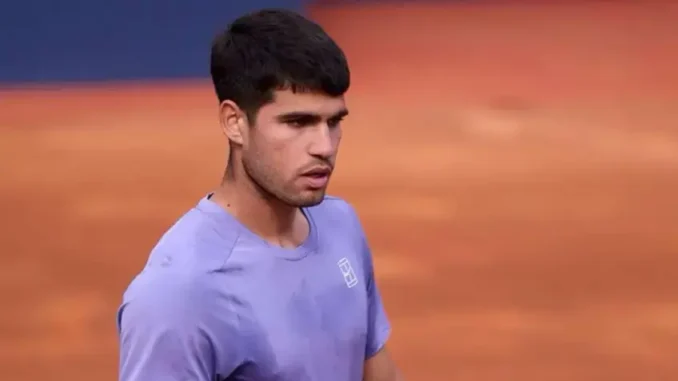
Fresh off a commanding 6-2, 6-2 victory over Tommy Paul at the 2025 Madrid Open, British No. 1 Jack Draper has solidified his status as a rising star, reaching the quarterfinals of a Masters 1000 event for the fourth time in his career—and his first on clay. But it was his candid reflections in the post-match press conference, sparked by questions about Carlos Alcaraz’s recent Netflix documentary, that captured attention. The world No. 6, now the highest-ranked player left in the Madrid draw, offered a poignant perspective on the sacrifices required to compete at tennis’s elite level, drawing inspiration from Alcaraz’s introspective revelations while putting his own spin on the grueling demands of the sport.
Alcaraz’s documentary, which delves into the 21-year-old Spaniard’s meteoric rise and the personal toll of his ambition, has resonated widely since its release. In it, the four-time Grand Slam champion grapples with doubts about whether he’s willing to make the sacrifices needed to become one of the greatest players ever, at times feeling like a “slave to tennis.” Draper, who has faced Alcaraz multiple times, including a dramatic 6-1, 0-6, 6-4 upset at Indian Wells in March 2025, was asked about these comments. “I don’t know if you read the comment from Alcaraz’s documentary about sometimes doubting if he’s ready to make the necessary sacrifices to be the best,” a reporter prompted, asking Draper about his own relationship with the sport’s relentless demands and whether he ever questions, “Do I want to do this with my life?”
Draper’s response was both introspective and grounded. “I doubt myself every day,” he admitted, acknowledging the mental and physical toll of professional tennis. “Professional tennis is relentless. We compete, train, give up seeing our families for a large part of the year… We sacrifice our lives.” Yet, he framed these challenges with a sense of perspective, emphasizing the privileges that come with the grind. “If you want to be great, then these are the things you have to do. It’s not like we’re… there’s much harder work out there, you know, putting things in perspective,” he said. “I do a sport I love, I get to travel with amazing people, earn good money. And, you know, it is really, really mentally challenging, physically challenging, but I think, yeah, I kind of, I enjoy that.”
Draper’s words reflect his own journey, marked by triumphs and setbacks. His 2025 season has been a breakout, with a Masters 1000 title at Indian Wells—where he dethroned Alcaraz in the semifinals—and a career-high ranking of No. 6. But injuries have been a constant hurdle, including a hip issue that forced him to retire against Alcaraz in the 2025 Australian Open fourth round. “The key is having that consistent time where you’re injury-free,” Draper noted earlier this year, underscoring his focus on building durability. His Madrid performance, where he dispatched Paul in just 61 minutes, signals that he’s overcoming those physical challenges, with sharper movement and consistent serving fueling his clay-court success.
The Alcaraz-Draper rivalry adds depth to their narrative. Since their first meeting in 2022, Draper has won three of their five encounters, including a grass-court upset at Queen’s Club in 2024. Their mutual respect is evident—Alcaraz sent supportive texts during Draper’s injury struggles in 2023, a gesture that former British No. 1 Laura Robson described as emblematic of his character: “Carlos just got the situation.” Alcaraz, absent from Madrid due to a forearm injury, has praised Draper’s rise, saying, “The thing that makes his tennis really high right now, he’s solid on every point.” This camaraderie underscores the shared pressures they face as young stars navigating fame and expectation.
Draper’s Madrid run now pits him against Matteo Arnaldi, the tournament’s surprise package after upsetting Novak Djokovic and Frances Tiafoe. A win could propel Draper toward his second Masters 1000 final, further cementing his place among the elite. Meanwhile, Alcaraz’s documentary has sparked broader conversations about the mental health of top athletes, with Novak Djokovic calling his “slave to tennis” comment “a little bit of a harsh word” but acknowledging the pressures of the sport. For Draper, the documentary serves as a reminder of the sacrifices he embraces daily, balanced by a love for the game. As he prepares for his next challenge, his reflections reveal a player not just chasing greatness, but savoring the journey—challenges and all.
Leave a Reply